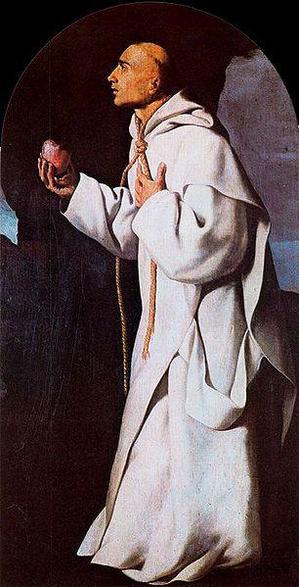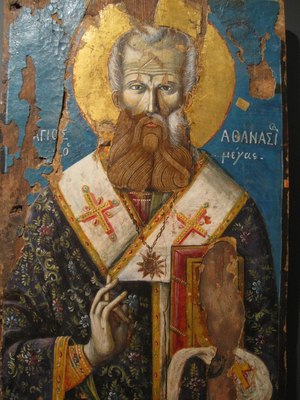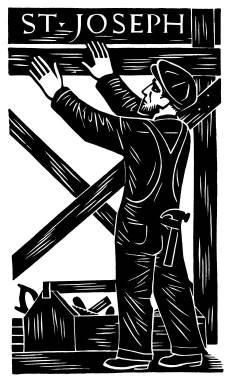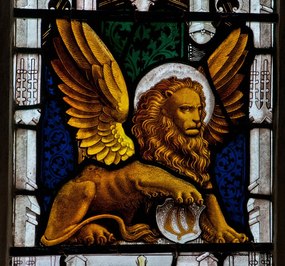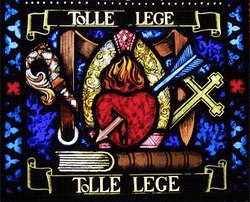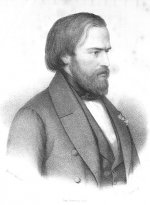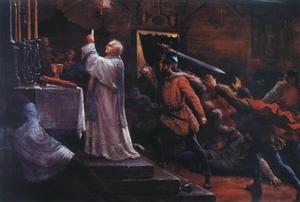Let us pray for the Roman Pontiff whose baptismal name is George, and for all those who claim the saint has their heavenly patron before God Almighty.
St. George and The Dragon
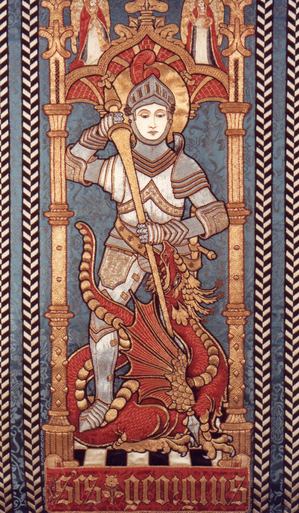
Of Hector’s deeds did Homer sing,
And of the sack of stately Troy,
What griefs fair Helena did bring,
Which was Sir Paris’ only joy:
And by my pen I will recite
St. George’s deeds, and English knight.
Against the Sarazens so rude
Fought he full long and many a day,
Where many gyants he subdu’d,
In honour of the Christian way;
And after many adventures past,
To Egypt land he came at last.
Now, as the story plain doth tell,
Within that countrey there did rest
A dreadful dragon fierce and fell,
Whereby they were full sore opprest:
Who by his poisonous breath each day
Did many of the city slay.
The grief whereof did grow so great
Throughout the limits of the land,
That they their wise-men did intreat
To shew their cunning out of hand;
What way they might this fiend destroy,
That did the countrey thus annoy.
The wise-men all before the king,
This answer fram’d incontinent:
The dragon none to death might bring
By any means they could invent;
His skin more hard than brass was found,
That sword nor spear could pierce nor wound.
Continue reading St. George and The Dragon
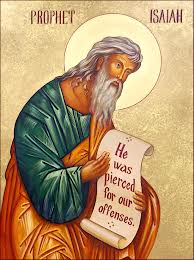 In the Roman Martyrology we read that today the Church liturgically recalls Saint Isaiah, a major prophet in the Old Testament. A translation of the entry found in the Martyrology:
In the Roman Martyrology we read that today the Church liturgically recalls Saint Isaiah, a major prophet in the Old Testament. A translation of the entry found in the Martyrology: